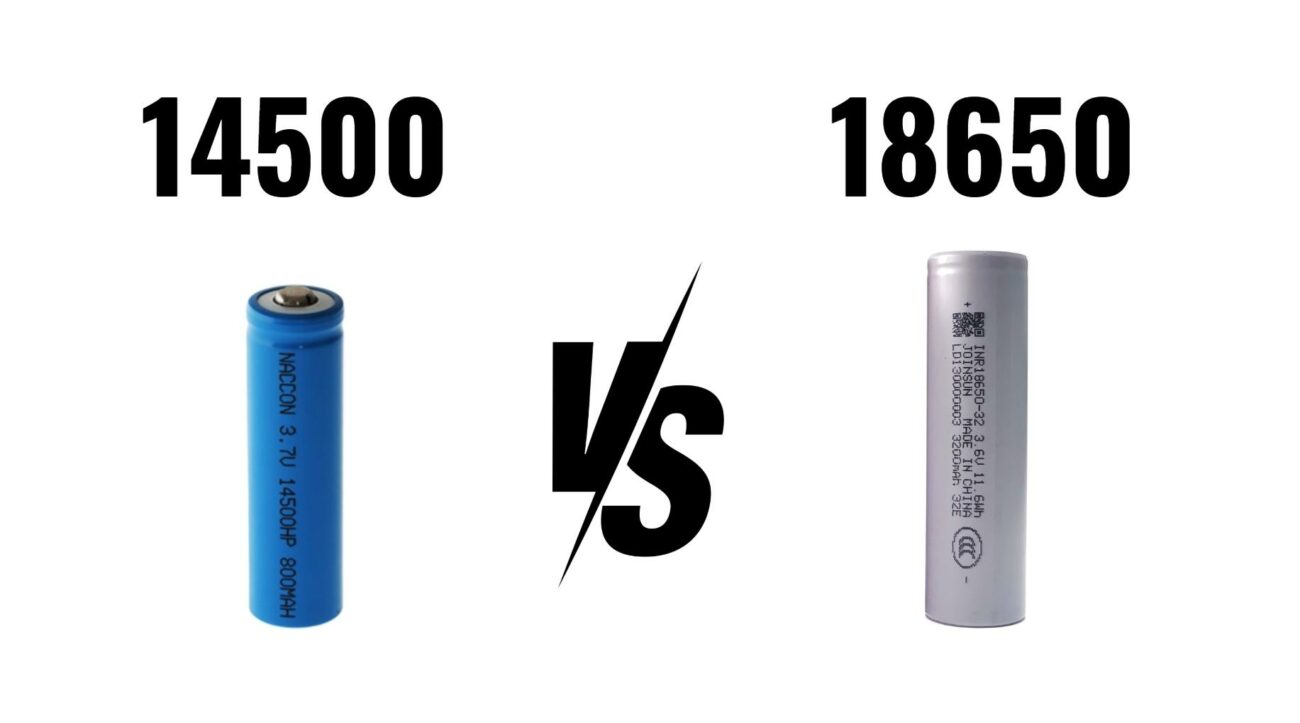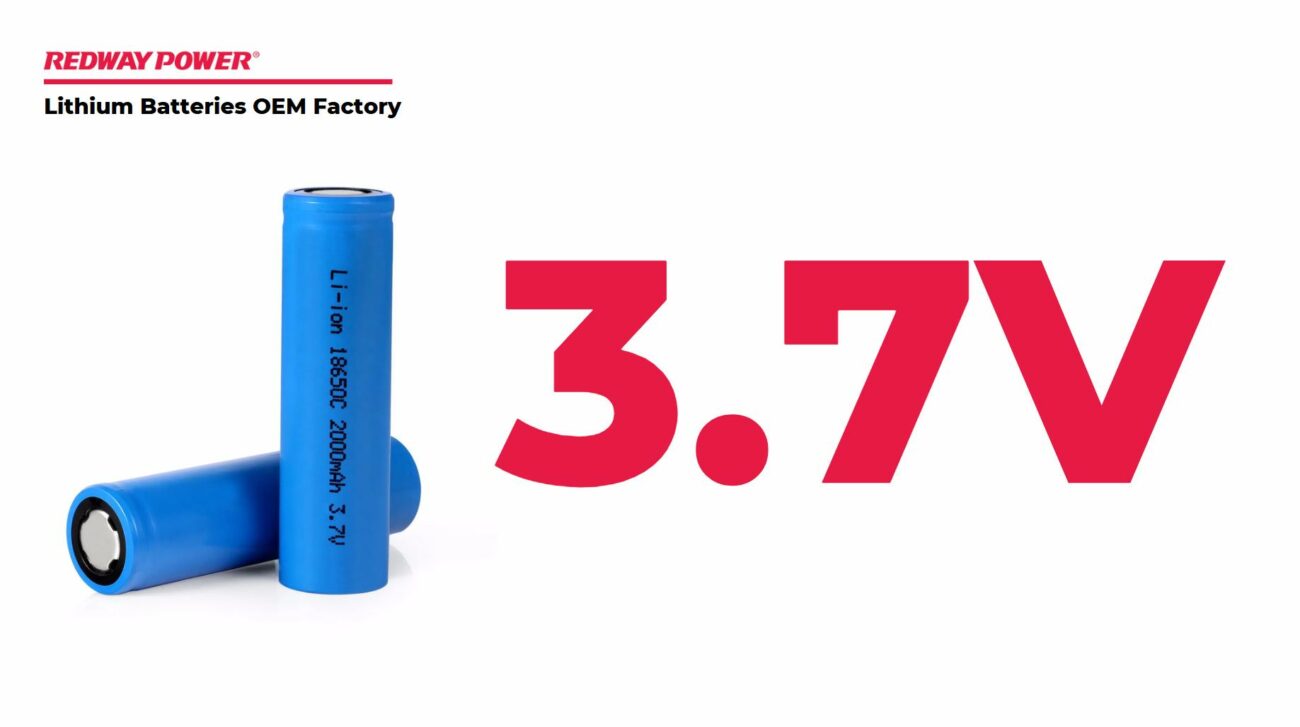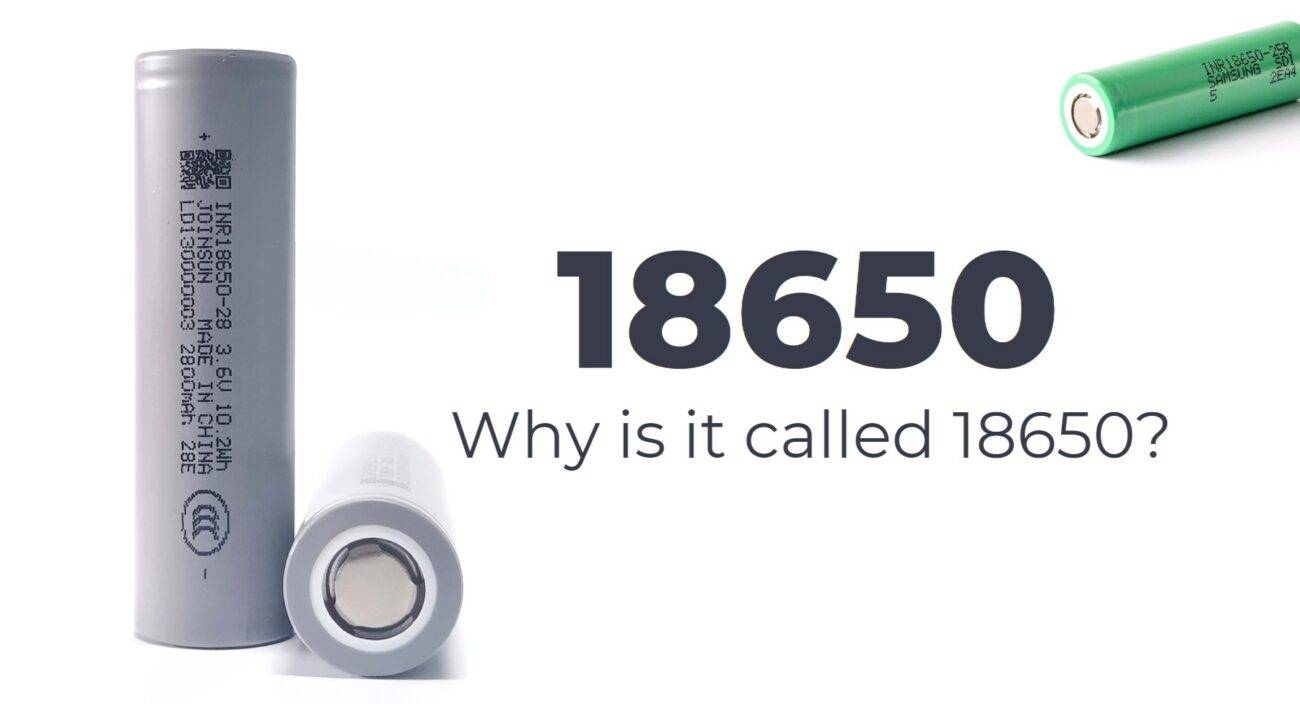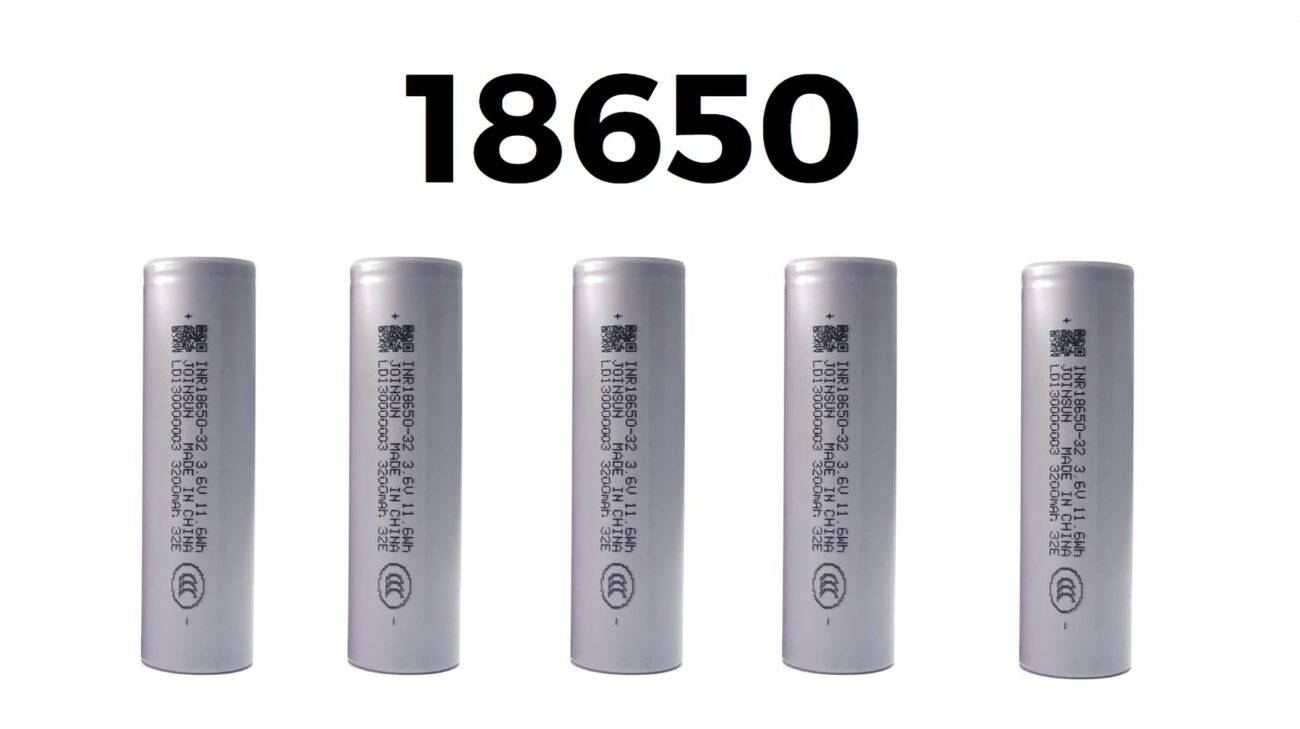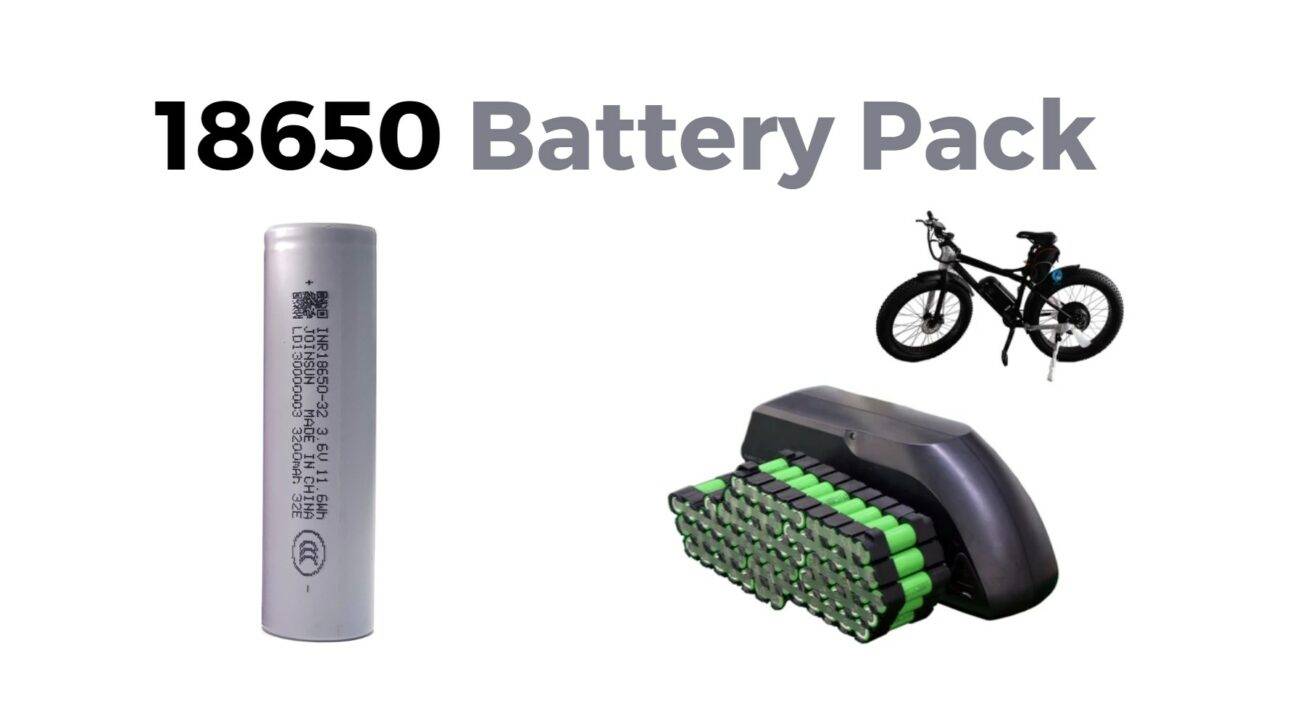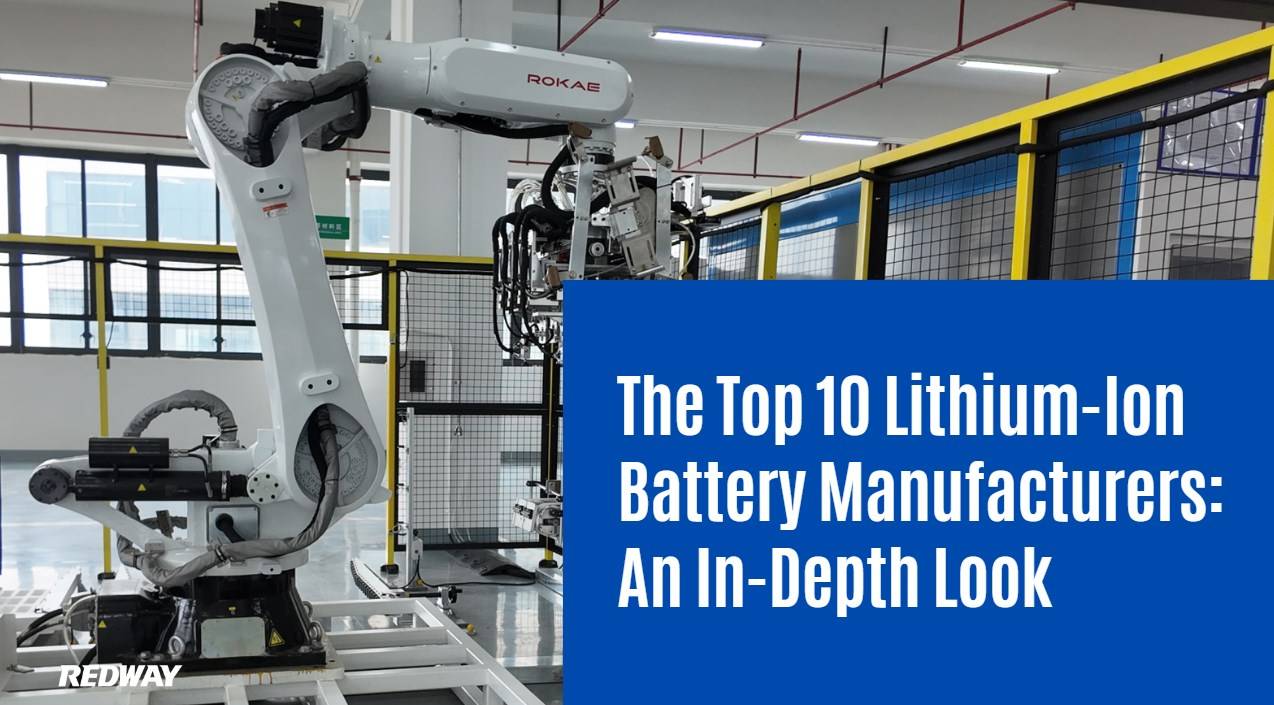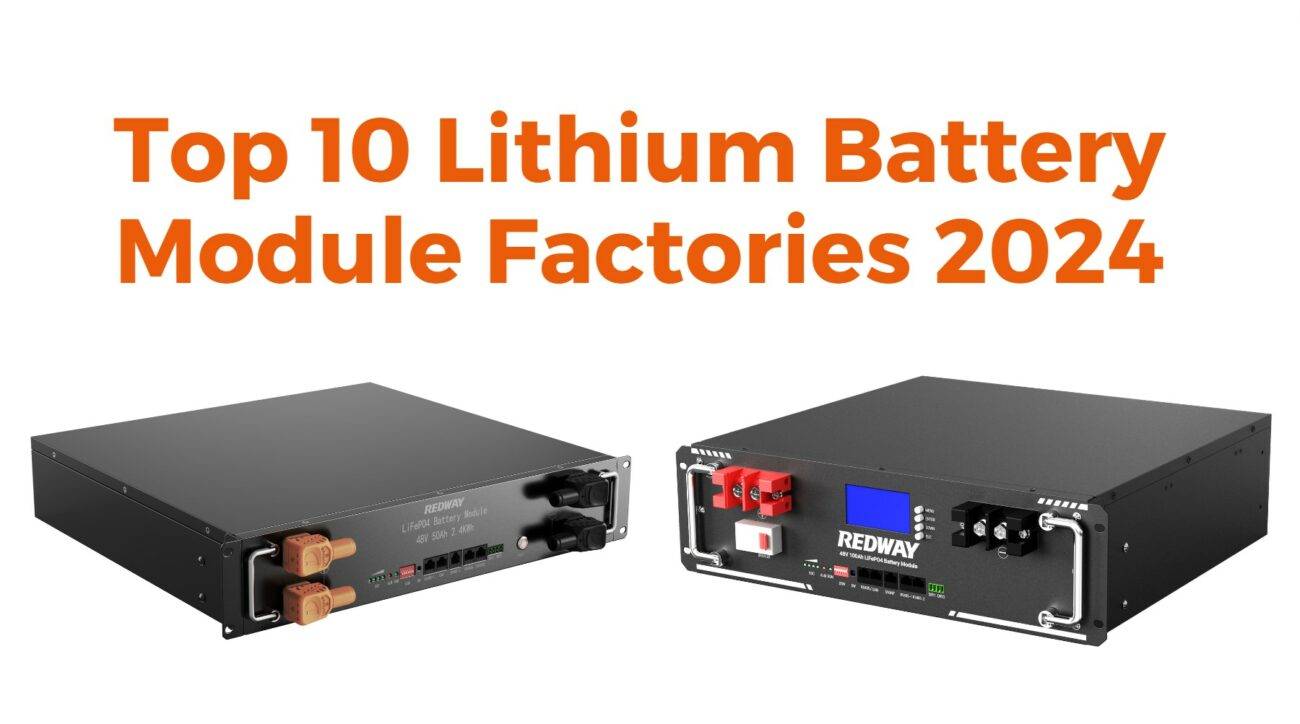The 26650 and 18650 batteries mainly differ in their physical size and capacity. The 26650 battery is larger, with a 26mm diameter and 65mm length, allowing it to store more energy—typically 3000mAh to over 5000mAh—compared to the smaller 18650 battery, which is 18mm in diameter and 65mm long, with capacity ranging from 1200mAh to 3600mAh. The 26650 offers higher power and longer runtimes but is heavier and bulkier, while the 18650 is more versatile and widely used.
What Are the Physical Dimension Differences Between 26650 and 18650 Batteries?
The primary physical difference is size: the 26650 battery measures 26mm in diameter and 65mm in length, whereas the 18650 battery measures 18mm in diameter and 65mm in length. This larger diameter provides the 26650 with greater internal volume for energy storage, but also makes it heavier and less suitable for compact devices.
How Does Capacity Compare Between 26650 and 18650 Batteries?
The 26650 battery typically has a higher capacity, often around 3000mAh to 5200mAh or more, due to its larger size. In contrast, the 18650 battery capacities generally fall between 1200mAh and 3600mAh. This makes the 26650 ideal for applications demanding longer runtimes and more power, while the 18650 suits devices needing moderate energy in a smaller form factor.
Which Applications Prefer 26650 or 18650 Batteries?
26650 batteries are favored in high-drain, heavy-duty applications such as power tools, electric bikes, flashlights, and energy storage systems due to their higher power output and capacity. The 18650 battery is widely used in consumer electronics like laptops, portable lighting, vape devices, power banks, and smaller electric vehicles owing to its compact size and adequate energy density.
Why Is Energy Density Higher in 18650 Batteries Despite Smaller Size?
Although smaller, 18650 batteries often have higher energy density—meaning more energy per unit volume—thanks to advanced cell chemistries and optimized manufacturing techniques. This enables them to deliver substantial power despite their size, contributing to their popularity in portable electronics where space is limited.
How Do Weight and Cost Differ?
26650 batteries are significantly heavier, about twice the weight of 18650 cells (around 94g vs. 45g), due to their larger size and materials. They also tend to be more expensive on a unit basis because of higher material requirements and specialized manufacturing. The 18650 batteries are cheaper, more mass-produced, and lighter, making them cost-effective for many applications.
Can 18650 Batteries Replace 26650 Batteries?
Direct replacement is generally not feasible due to size and performance differences. The 18650’s smaller size means less energy capacity and output compared to a 26650. However, devices designed for 26650 may sometimes tolerate 18650 batteries in multiples or parallel configurations, but this requires careful electrical and mechanical considerations to maintain safety and performance.
What Are the Lifespan Differences Between 26650 and 18650 Batteries?
Typically, 26650 batteries can achieve longer lifespans, sometimes up to double the cycle counts of 18650 cells, because of larger electrode surfaces and better heat dissipation. However, lifespan also depends heavily on battery chemistry, usage patterns, and quality. Both types can have lifespans ranging from 300 to 800 cycles or more under optimal conditions.
How Does Redway Battery Optimize 26650 and 18650 Cells?
Redway Battery applies cutting-edge manufacturing and materials technology to optimize both 26650 and 18650 cells for maximum safety, longevity, and performance. By tailoring chemistry and design to client specifications, Redway ensures each battery type meets the unique demands of applications from forklifts and golf carts to telecom and energy storage.
Are There Safety Considerations Between 26650 and 18650 Batteries?
Both batteries use lithium-ion chemistry and require proper management systems like BMS for safety. The larger 26650 can dissipate heat better but also stores more energy, raising thermal risk if mishandled. The compact 18650 needs precise control and quality assurance to avoid overheating or short circuits. Redway Battery prioritizes safety by adhering to ISO 9001:2015 standards and automated quality controls.
When Should You Choose 26650 Over 18650 Batteries?
Choose the 26650 battery when higher capacity, longer runtimes, and sustained power output are critical, chiefly in power tools, electric vehicles, or off-grid energy storage. Opt for 18650 batteries where space, weight, and cost are constraints and moderate power suffices, such as consumer electronics or portable devices.
Redway Battery Expert Views
“Selecting the right battery form factor is essential for efficiency and safety. The 26650 excels in high-drain, extended-use scenarios, while the 18650 offers versatility and compactness. At Redway Battery, we engineer both with precision and customization, ensuring optimal performance for industrial and consumer applications alike. Our commitment to quality and innovation supports customer success worldwide.” — Dr. Li Wei, Chief Engineer, Redway Battery
Summary of Key Takeaways
The main difference between 26650 and 18650 batteries is size, affecting capacity, weight, and power delivery. The larger 26650 offers higher capacity and longer life but is bulkier and costlier. The 18650’s smaller size and high energy density make it the go-to choice for portable electronics and moderate power needs. Redway Battery’s expertise enables tailored solutions leveraging each battery’s strengths to satisfy diverse energy requirements with safety and reliability.
FAQs
1. What does the 18650 and 26650 naming mean?
They designate battery dimensions: 18mm or 26mm in diameter, both 65mm in length.
2. Which battery has higher capacity, 18650 or 26650?
The 26650 generally has higher capacity due to its larger size.
3. Can I use 18650 batteries in devices made for 26650?
Not directly, because of size and capacity differences; modifications or multiple cells are needed.
4. Which battery type is safer?
Safety depends on quality and management systems; both require proper handling.
5. How does Redway Battery ensure quality?
Through advanced manufacturing, ISO certification, OEM customization, and rigorous testing.








